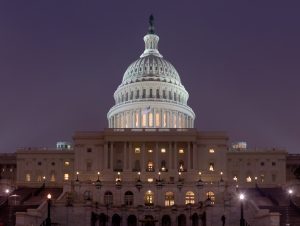 With the race for President ending this week, one concern expressed by some has been the lack of any substantive discussion about US energy policy. While Mr. Trump has often mentioned reviving the coal industry as part of a larger emphasis on policies that leverage the country’s domestic energy resources, Secretary Clinton’s campaign has said her policies will look to grow clean energy resources like wind and solar energy. But after three debates, many believe the country needs more information on this topic from both candidates for President. A recent debate (video here) however between campaign advisors for Mr. Trump and Secretary Clinton may have offered a chance to learn more about each candidate’s energy agenda.
With the race for President ending this week, one concern expressed by some has been the lack of any substantive discussion about US energy policy. While Mr. Trump has often mentioned reviving the coal industry as part of a larger emphasis on policies that leverage the country’s domestic energy resources, Secretary Clinton’s campaign has said her policies will look to grow clean energy resources like wind and solar energy. But after three debates, many believe the country needs more information on this topic from both candidates for President. A recent debate (video here) however between campaign advisors for Mr. Trump and Secretary Clinton may have offered a chance to learn more about each candidate’s energy agenda.
Speaking to Mr. Trump’s priorities, Representative Kevin Cramer (R-ND) focused on the economic costs of climate change and often referenced the Paris Accord as another trade deal undermining America’s energy interests. Rep. Cramer argued the United States is a relatively small greenhouse gas emitter but it is being relied on heavily to cut emissions. “If the United States ceased to exist tomorrow … we wouldn’t affect the temperature in the next 50 years on the globe,” Cramer said. Trevor Houser, Clinton’s top energy advisor, reaffirmed her vision of an expanded role for low-carbon sources to supply the nation’s energy. Houser emphasized Clinton’s view that climate challenges are directly related to society’s use of carbon-intensive fuel sources like coal.
Cramer and Houser also discussed how their candidates would address the economic consequences of the country’s reduced dependence on coal. Houser argued the transition away from coal began long ago. To aid those communities impacted by this transition, Houser stated that Secretary Clinton is prepared to invest government resources in new economic opportunities. In response, Cramer said “The government should not be determining who gets a job and who gets a government program. They ought to be out of the business of determining those things and let the market decide.”
Current discussions in the Southeast continue to place heavy emphasis on the increased inclusion of and service to low-income customers in the region. At the federal level, stakeholders would benefit… Read more »
The Energy Collective has a new article that’s relevant: “Who’s Waging The War On Coal? Not The U.S. Government“. Appalachian coal, it seems, has been in steady decline for quite some… Read more »
Obviously, the most important energy policy for the next administration is addressing climate change by, for example, putting a price on carbon. It seems, however, that the new administration does… Read more »
Yes Dan, the new Trump administration presents an ominous situation for the United States and the world in addressing the most critical long-term energy policy issue of how to solve… Read more »